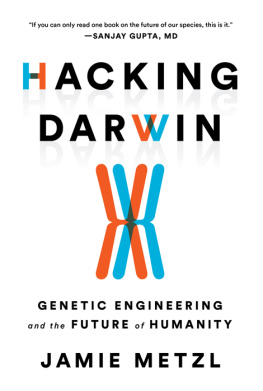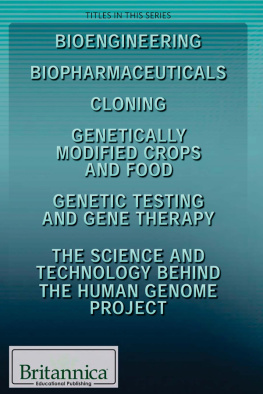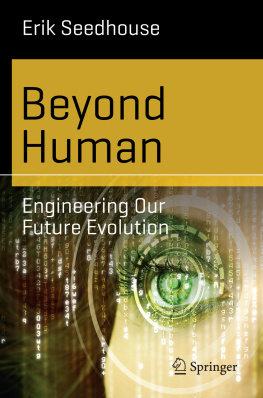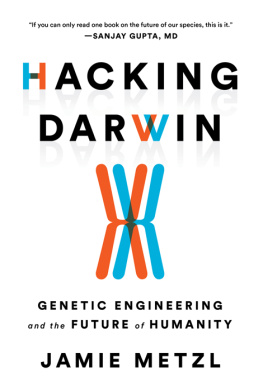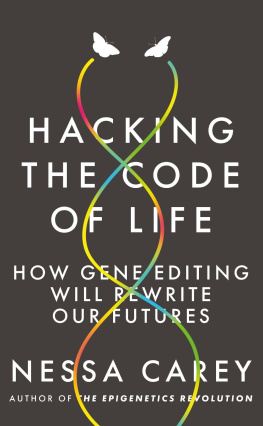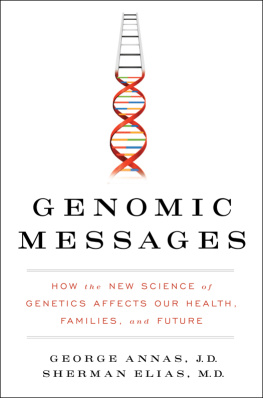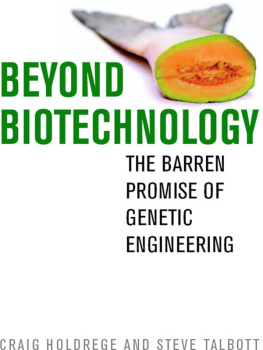Copyright 2019 by Jamie Metzl
Cover and internal design 2019 by Sourcebooks, Inc.
Cover design by Pete Garceau
Internal design by Jillian Rahn/Sourcebooks, Inc.
Internal images Phaelnogueira/Getty Images, MonsterDesignX/Getty Images, Red_Hayabusa/Getty Images, kovalto1/Getty Images, Andrei Minsk/Shutterstock
Sourcebooks and the colophon are registered trademarks of Sourcebooks, Inc.
All rights reserved. No part of this book may be reproduced in any form or by any electronic or mechanical means including information storage and retrieval systemsexcept in the case of brief quotations embodied in critical articles or reviewswithout permission in writing from its publisher, Sourcebooks, Inc.
This publication is designed to provide accurate and authoritative information in regard to the subject matter covered. It is sold with the understanding that the publisher is not engaged in rendering legal, accounting, or other professional service. If legal advice or other expert assistance is required, the services of a competent professional person should be sought.From a Declaration of Principles Jointly Adopted by a Committee of the American Bar Association and a Committee of Publishers and Associations
This book is not intended as a substitute for medical advice from a qualified physician. The intent of this book is to provide accurate general information in regard to the subject matter covered. If medical advice or other expert help is needed, the services of an appropriate medical professional should be sought.
All brand names and product names used in this book are trademarks, registered trademarks, or trade names of their respective holders. Sourcebooks, Inc., is not associated with any product or vendor in this book.
Published by Sourcebooks, Inc.
P.O. Box 4410, Naperville, Illinois 60563-4410
(630) 961-3900
Fax: (630) 961-2168
sourcebooks.com
Library of Congress Cataloging-in-Publication Data
Names: Metzl, Jamie Frederic, author.
Title: Hacking Darwin : genetic engineering and the future of humanity / Jamie Metzl.
Description: Naperville, Illinois : Sourcebooks, [2019] | Includes bibliographical references.
Identifiers: LCCN 2018041051 | (hardcover : alk. paper)
Subjects: | MESH: Genetic Engineering--ethics | Organisms, Genetically Modified | In Vitro Techniques | Human Genetics--trends
Classification: LCC QH437 | NLM QU 550.5.G47 | DDC 576.5--dc23
LC record available at https://lccn.loc.gov/2018041051
Contents
Also byJAMIE METZL
FICTION
Eternal Sonata
Genesis Code
The Depths of the Sea
NONFICTION
Western Responses to Human Rights
Abuses in Cambodia, 19751980
Our life is a creation of our mind.
GAUTAMA BUDDHA
Introduction
Entering the Genetic Age
Why are you here? the young receptionist asked.
It was my first visit to the New York cryobank and I was already feeling a bit uncomfortable.
I just think its a good thing for most everyone to do, I said with a shrug. I lecture around the world on the future of human reproduction and tell anyone wholl listen who wants to have kids they should freeze their eggs or sperm when in their twenties. Im just a little late.
She raised an eyebrow. About twenty years late? I dont understand. Are you a donor?
No.
Are you going into chemotherapy or having some other medical treatment that could harm your sperm?
No.
Are you in the military about to be deployed?
No
The only remaining category on my form is other, she concluded after an awkward pause. Should I put you down for that?
Already feeling a bit precarious, I didnt want to go into the options I was mulling in my mind. Maybe Ill want to have children someday so may as well store my younger sperm now. Maybe Ill volunteer my sperm to be sent into space when humans starts colonizing the rest of the solar system. Maybe, as I believe, our species is moving toward a genetically altered future in which more of us will conceive our offspring in labs rather than in our beds or the back seats of our cars. Whatever maybes might arise, starting now was the first step.
Well? she asked.
I smiled nervously, my mind processing the incredible moment in our evolutionary history where revolutionary new technologies and my own personal biology were intersecting in this antiseptic midtown Manhattan office.
Scientists and theologians can debate whether the first spark of life on our planet sprang from thermal vents on the ocean floor or divine inspiration (or both), but most everyone who believes in science recognizes that around 3.8 billion years ago the first single-cell organisms emerged. These mircroorganisms would have died after one generation if they couldnt find a way to reproduce. But life found a way, and the microbes that started dividing were the ones able to keep their little microbial families going. If each division of these early cells had been an exact copy of the parent, our world would still be occupied solely by these single-cell creatures, and you wouldnt be reading this book. But thats not what happened.
The history of our species is the story of little errors and other changes that kept popping up in the reproduction process.
After a billion years of these small variations created a vast number of slightly different models, one or more of them transformed into simple, multicellular organisms. Still not much by todays standards, these organisms had the potential to introduce even more differences as they reproduced. Some of these variations gave one type of organism or another a small advantage in acquiring food or fending off enemies, providing them the opportunity to live on and mutate more. After two and a half billion years of this, the mutation and competition driving life forward took another miraculous leap with the advent of sexual reproduction.
Sexual reproduction introduced a radical new way of generating diversity when the genetic information of mothers and fathers recombined in novel ways. This incredible process supercharged some of these simple organisms to begin mutating wildly, particularly by around 540 million years ago, into a previously unimaginable diversity of life, including fish. About 200 million years ago, some fish crawled out of the water and evolved into mammals. Around 300,000 years ago, some of those mammals morphed into Homo sapiens, a.k.a. us.
Thats basically our evolutionary history. Every one of us is a single-cell organism gone wild through nearly four billion years of random mutation whose ancestors have continually out-competed their competitors in a never-ending cage match for survival. If your ancestors survived and procreated, you are here. If not, you are not. The shorthand name for this is Darwinian evolution. It got us to this point. But now the principles of Darwinian evolution are themselves mutating.
From this point onward, much of our mutation will not be random. It will be self-designed.
From this point onward, our selection will not be natural. It will be self-directed.
From this point onward, our species will take active control of our evolutionary process by genetically altering our future offspring into something different from what we are today. We are, in other words, beginning a process of hacking Darwin.
It is an incredible idea with monumental implications.

